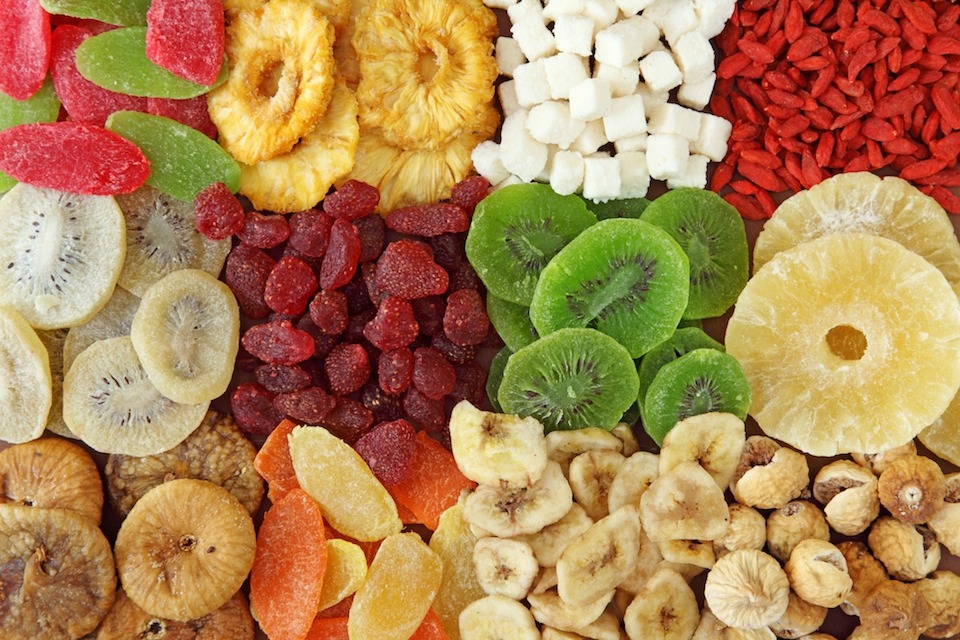Health Benefits of Dried Fruit
Dried fruits offers some benefits over fresh fruits: a longer shelf life and portability. If you are watching your weight, dried fruits should be eaten in restraint as they contain significantly a greater number of calories per serving than fresh fruits. Some dried fruits contain sugars included in processing which increase its calorie content. However, dried fruits without additives offer various health benefits.
High Fiber
Dried fruits mostly contains more fiber than the same-sized serving of their fresh counterparts. Fiber helps keep your digestive system running easily. Dried apricots, for example, while fresh apricots contain just 3.1 grams, contain 6.5 grams per cup. A cup of raisins contains 5.4 grams of fiber versus just 1.4 grams for seedless grapes. Fiber not only helps your digestive system. It helps prevent obesity, heart disease and some forms of cancer.
Antioxidants
Some dried fruits are a great source of certain antioxidants, a type of antioxidant, are more abundant in fruits like dates and figs than in some fresh fruits, leading researchers to advise that more dried fruits be included in diet. Plant polyphenols have been found to fight heart disease, osteoporosis, cancer, diabetes, and degenerative diseases of the brain, according to the November-December 2009 issue of “Oxidative Medicine and Cellular Longevity.”
Fat and Calories
Dried fruits contains practically zero fat. They also contain significant calories per serving, making them a natural wellspring of energy for athletes. They are also a great supplement for people seeking to gain weight healthfully. If you are watching your weight, you may need to limit your intake of dried fruit due to the calorie content.



Facebook Comments